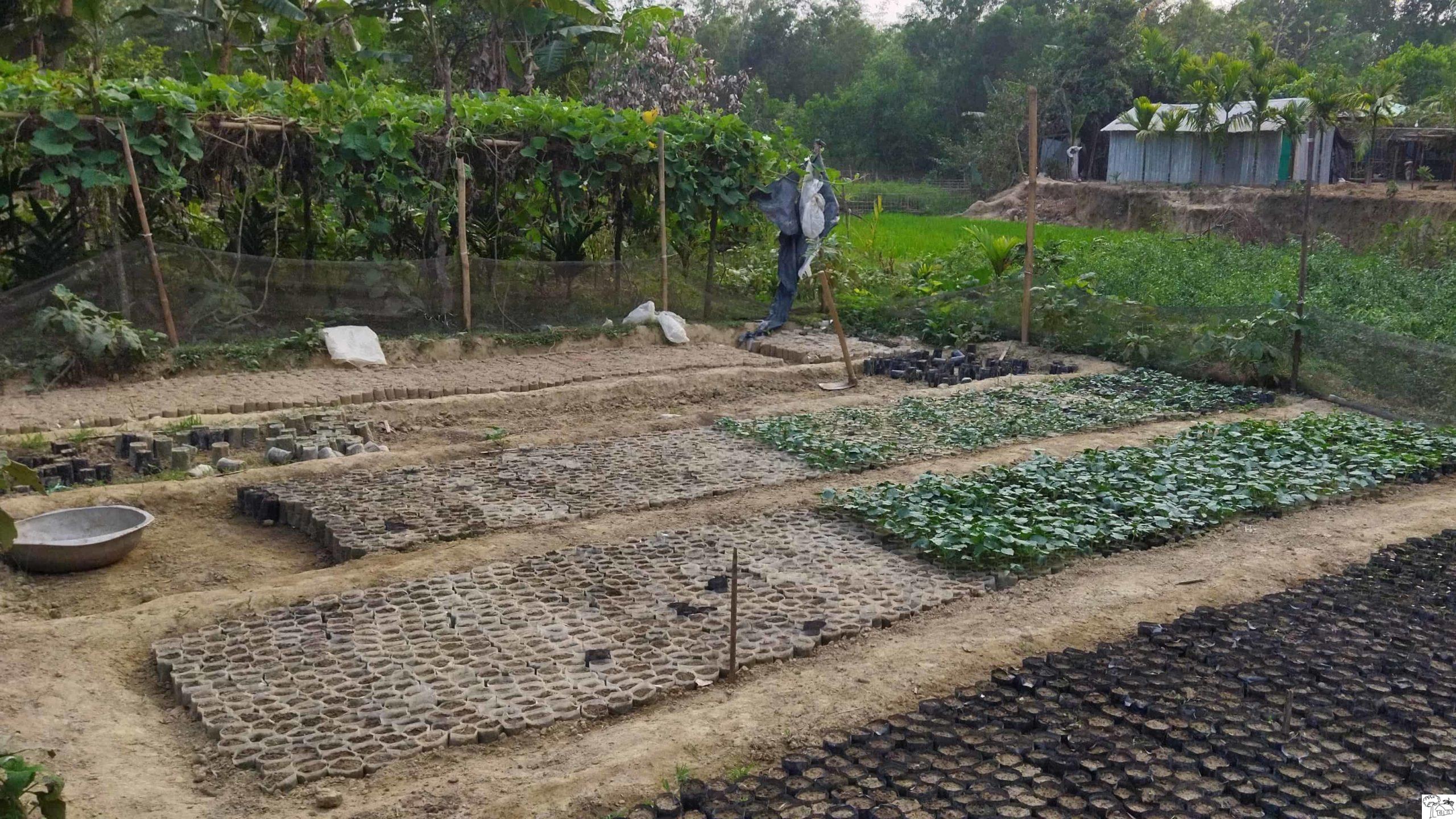
Agroforestry has emerged as a promising approach for sustainable agriculture and livelihoods, particularly in countries like Bangladesh, where farmers face multiple challenges, including climate change, land degradation, and food insecurity. Agroforestry involves the integration of trees with crops and livestock, providing numerous benefits such as enhanced soil fertility, biodiversity, and ecosystem services. However, establishing agroforestry systems requires access to appropriate tree species, which can challenge smallholder farmers.
Community-based nurseries have been identified as a successful approach to overcoming the constraints of accessing quality planting material, particularly in developing countries. These nurseries, owned and managed by community members, produce a variety of tree species and vegetable seedlings, spice seedlings, and flower and ornamental seedlings. This article discusses the potential of community-based nurseries for promoting agroforestry in Bangladesh, including their benefits, challenges, and the way forward.
Benefits of Community-Based Nursery for Agroforestry in Bangaldesh
Community-based nurseries can bring a range of benefits for promoting agroforestry in Bangladesh, including:
- Access to quality planting material: Farmers can access a diverse range of high-quality planting materials, including fruit trees, timber trees, medicinal trees, and agroforestry trees, adapted to local conditions and to meet farmers’ needs and preferences.
- Income generation: Community-based nurseries can provide a source of income for farmers, particularly for women and marginalized groups with limited access to other income-generating activities.
- Capacity building: Nurseries provide opportunities for farmers to learn about tree species, nursery management, and agroforestry practices, enhancing their knowledge and skills.
- Environmental benefits: Community-based nurseries promote local biodiversity conservation, soil conservation, and carbon sequestration.
Challenges of Community-Based Nurseries for Agroforestry
Despite the potential benefits, establishing and maintaining community-based nurseries for agroforestry in Bangladesh can face several challenges, including:
- Limited technical knowledge: Farmers may need more technical expertise in nursery management, tree propagation, and agroforestry practices, which can affect the quality and quantity of planting material.
- Lack of seed sources: Availability of quality seed sources can be a challenge, particularly for rare and indigenous tree species.
- Limited financial resources: Farmers may need more access to financial resources to invest in nursery infrastructure and purchase inputs, such as seeds, fertilizers, and irrigation systems.
- Marketing and distribution: Farmers may face challenges marketing and distributing their products, including transporting seedlings to remote areas.
Way Forward: Promoting Community-Based Nursery for Agroforestry in Bangladesh
To promote community-based nurseries for agroforestry in Bangladesh, the following strategies could be adopted:
- Strengthening technical capacity: Providing training and technical support to farmers on nursery management, tree propagation, and agroforestry practices can enhance the quality and quantity of planting material.
- Enhancing seed sources: Promoting the conservation and cultivation of rare and indigenous tree species, establishing seed banks, and encouraging collaboration among farmers and local institutions can increase the availability of quality seeds.
- Mobilizing financial resources: Supporting farmers in accessing financial resources through microfinance, government schemes, and private sector partnerships can help overcome the financial constraints of establishing and maintaining nurseries.
- Developing marketing and distribution networks: Supporting farmers in developing marketing and distribution networks, including transport infrastructure and partnerships with local traders and cooperatives, can enhance the marketability and profitability of nursery products.
In conclusion, community nurseries for agroforestry in Bangladesh can be a viable solution to promote sustainable land use practices, conserve biodiversity, and increase local communities’ economic opportunities. The positive impacts of community nurseries on the environment, society, and the economy have been demonstrated through various research studies and on-ground examples.
However, it is essential to note that community nurseries require consistent support and participation from local communities, government, and other stakeholders to sustain their benefits in the long term. Therefore, there is a need for collaborative efforts to promote and scale up community nurseries for agroforestry in Bangladesh and other similar regions.
Investing in community nurseries can create a win-win situation for both people and the planet. It can help address environmental challenges such as deforestation, climate change, and biodiversity loss while supporting local livelihoods and food security. Therefore, it is essential to recognize the potential of community nurseries and take action to promote and support their growth.


